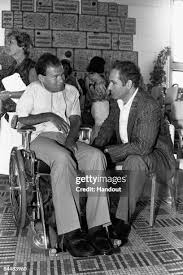The Ongoing Influence of Netanyahu on Israeli Politics

Introduction
Benjamin Netanyahu, the longest-serving Prime Minister of Israel, has played a pivotal role in shaping the country’s political landscape over the last few decades. His leadership and policies have been both influential and controversial, especially during a time of significant political tension and security challenges in the region. Understanding Netanyahu’s current influence is essential for grasping the dynamics of Israeli politics, especially as the country faces new elections and ongoing conflicts.
Current Events and Political Landscape
As of October 2023, Israel is witnessing another wave of instability, largely stemming from ongoing conflicts with Hamas and the complexities of Israeli-occupied territories. Netanyahu, who heads the Likud party, recently returned to the premiership after a series of elections that underscored deep divides within the Israeli electorate. His administration is once again facing intense scrutiny regarding its approach to security and foreign policy.
Netanyahu’s government has been marked by a hardline stance against terrorist organizations, and he has prioritized strengthening Israel’s defense mechanisms. However, this approach has stirred backlash both domestically and internationally, as civilian casualties continue to rise in ongoing conflicts.
In addition, Netanyahu’s legislative agenda focuses on economic reform and judicial changes aimed at bolstering national security, which has led to significant public demonstrations. Critics argue that his policies undermine democratic institutions and exacerbate tensions within Israeli society. The ongoing fallout from these reforms is further complicating coalition-building efforts in the Knesset (Israeli parliament).
Implications for the Future
The significance of Netanyahu’s influence cannot be understated. Analyzing his administration reveals the broader trends in Israeli politics, including rising nationalism and shifting alliances. With the potential for future elections looming, Netanyahu’s leadership style and policy choices will likely shape the direction of Israeli governance.
As international stakeholders watch closely, Netanyahu’s decisions regarding foreign relations—particularly with the United States and Arab nations—could redefine Israel’s approach to peace initiatives in the region. His historical precedence in fostering relations with countries such as the UAE demonstrates his strategic maneuvering.
Conclusion
Benjamin Netanyahu’s stature in Israeli politics remains substantial despite the controversies surrounding his tenure. As the situation in Israel continues to evolve, his influence will undoubtedly play a crucial role in addressing the military, political, and economic challenges ahead. Observers can expect that Netanyahu’s next moves will not only determine his personal political fate but also shape the future of the Israeli state and its relations with its neighbors.









